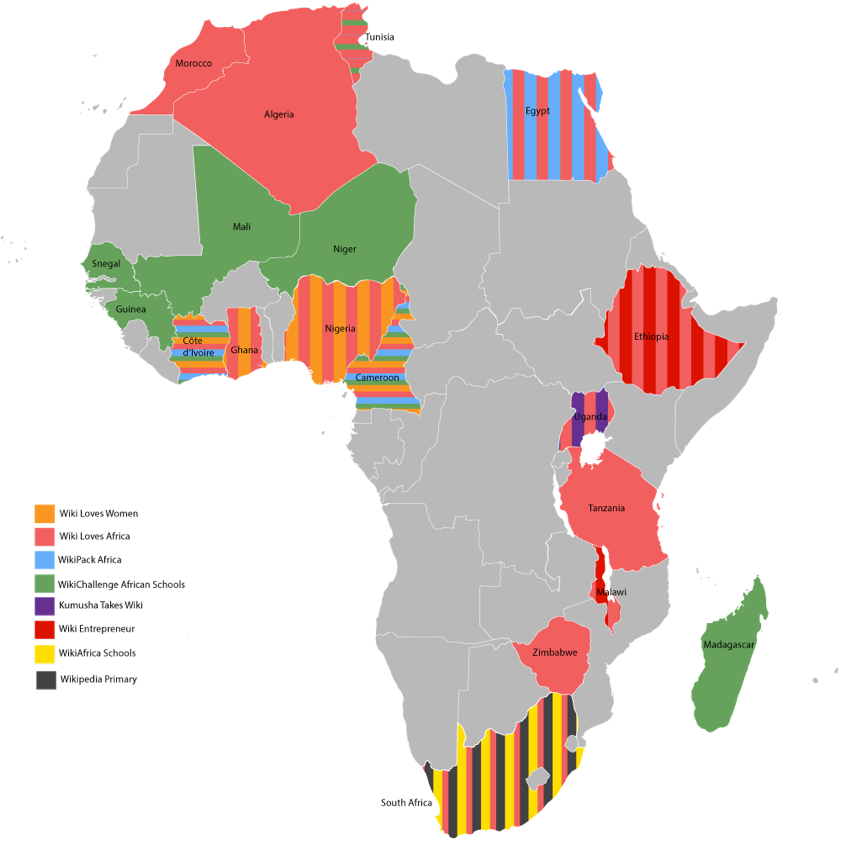Creative Commons is a nonprofit organization that enables the sharing and use of creativity and knowledge through free legal tools. The Creative Commons have a free-to-use copyright licenses. Their copyright licenses are pretty simple, standardized, and a way to give the public permission to share their creative work, on variable conditions of their choice. Thus, with Creative Commons, its not...
Creative Commons is a nonprofit organization that enables the sharing and use of creativity and knowledge through free legal tools. The Creative Commons have a free-to-use copyright licenses. Their copyright licenses are pretty simple, standardized, and a way to give the public permission to share their creative work, on variable conditions of their choice. Thus, with Creative Commons, its not always “All Rights Reserved”, you can choose to make “Some Rights Reserved”.
Creative Commons, headquartered in Mountain View and started in 2001, is devoted to expanding the range of creative works available for people to build upon legally and share.
[googleplus url=https://plus.google.com/107174506890941499078/posts/51EmNCWLndX]
Tobias Schonwetter, a copyright specialist, currently based in South Africa (though German) is a core member of the Creative Commons South Africa. Tobias was present at the Open Advocate Training Course today and talked about Creative Commons. Tobias shared with the students the various options available for licensing content and how Creative Commons does not get in the way of creators. In fact, Creative Commons is not an alternative to copyright laws in different countries. Rather, Creative Commons allows creators to enjoy sharing their creations just the way they want it.
Throughout his presentation slides, Tobias emphasizes how sharing content under the Creative Commons licenses can be a great way of allowing a creator to share creations or works as wide as possible, however, retaining the originality of, and enjoying attribution.
Creative Commons in South Africa is strong with its affiliate program beginning in 2011. The Creative Commons South Africa wishes to use their presence in the country to focus on Universities, software programmers, media geeks, musicians, authors, publishers, and marketers through Conference talks, website, social media platform, Legal advice and email.
One core of their priority in South Africa is to get and support interested organizations or website owners to share their content using the Creative Commons 3.0 license which contains many improvements over the 2.5 version.
[googleplus url=https://plus.google.com/107174506890941499078/posts/BhiPX5DLsrB]
An interactive session, which features each student explaining what Creative Commons is and how to use it to someone interested in having his content under the CC license.
Erina Mukata shares her experience of the Creative Commons discussion.
To license your content using Creative Commons, there are six options you can choose from. Get a license today from the Creative Commons website and share your content with “Some Rights Reserved”.
WikiAfrica is an international movement that takes place on the African continent and beyond. It encourages individuals, interested groups and organisations to create, expand and enhance online content about Africa. This involves motivating for the representation of the continent’s contemporary realities and history, its peoples and its innovations on the world’s most used encyclopaedia, Wikipedia. WikiAfrica is not owned by one organisation and it belongs to all people and organisations contributing to its scope.
In its various guises and hosted at several institutions (including Lettera27, Africa Centre, Ynternet.org, and Wikimedia CH), the WikiAfrica movement has consistently instigated and led multi-faceted innovative projects. These projects have activated communities and driven content onto Wikipedia. Examples include Share Your Knowledge, #OpenAfrica training Courses and Toolkits, Kumusha Bus (in Ethiopia and Ghana), WikiEntrepreneur (in Ethiopia and Malawi), Kumusha Takes Wiki (Cote d’Ivoire and Uganda) and Wiki Loves Africa.
Over 2016/17 it is working on Wiki Loves Women (in collaboration with the Goethe-Institut), WikiPack Africa, WikiFundi and the WikiChallenge African Schools (funded by the Orange Foundation), WikiAfrica Schools (funded by lettera27), Wikipedia Primary (funded by SUPSI) and Wiki Loves Africa (funded by Wikimedia Foundation).
WikiAfrica was started in 2006 as a collaboration between Wikimedia IT and lettera27, since then – via the support of several organisations and the work of a few people – it has grown to embrace the continent and build communities. It has been pivotal in driving the current contributions done by communities across sub-Saharan Africa.
The projects detailed below form the main backbone of the WikiAfrica movement. They have all been conceptualised, instigated and led by three members of Wiki In Africa, although until 2017 through the agency or fiscal sponsorship of different organisations.
2006
2009
2011
2012
2013
2014
2015
2016
2017

The organisations that have hosted or are collaborating on Wiki Africa projects include: